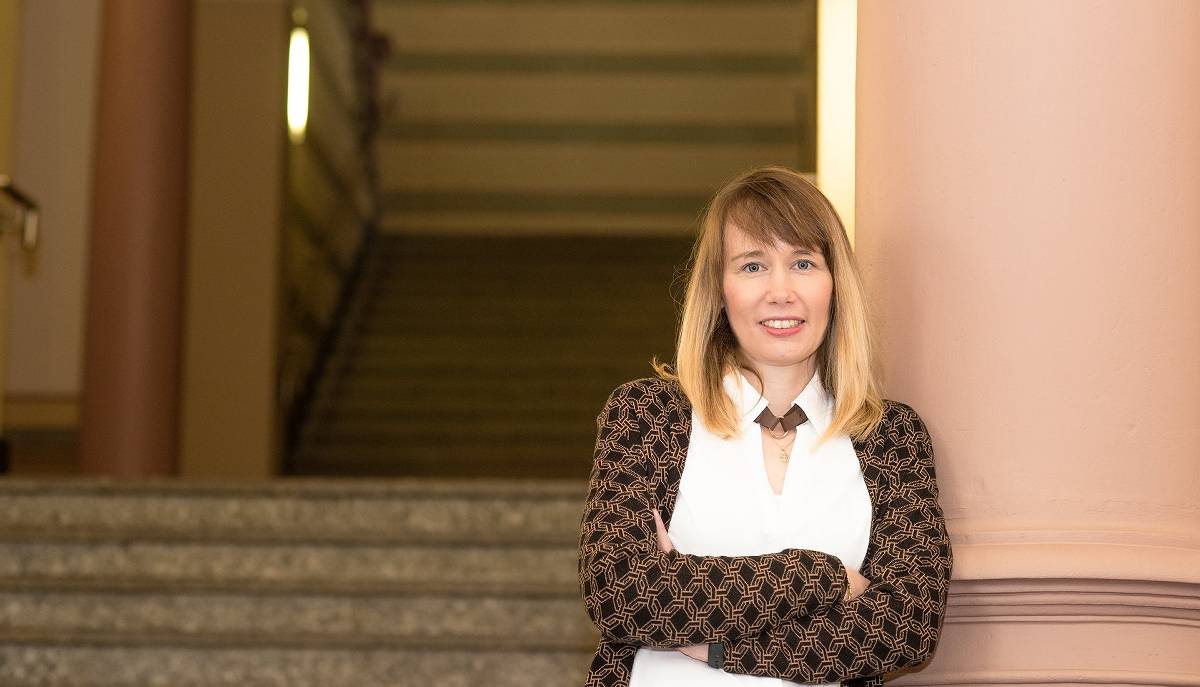New Professor of Neuroanatomy at Bonn University Hospital Expert in multiple sclerosis now researching in Bonn
Bonn · Stefanie Kürten is the new expert in neuroanatomy at Bonn University Hospital. She does intensive research on multiple sclerosis. She also likes to dj at parties during "normal times".
Rapid - that is one of the attributes that comes to mind when looking at Stefanie Kürten's career. She began her medical studies in Cologne in 2002, passed her medical examination after two years, and then moved to the USA to attend Case Western Reserve University in Cleveland/Ohio. There she completed her doctoral thesis within a year, initially with the goal of becoming a practicing neurologist.
Then came an interest in neuroanatomy. This discipline deals with the structure, size, and location of the nervous system and has shaped the young woman's career ever since.
Born in Dormagen, she used her stay abroad for her first research work in the laboratory - on multiple sclerosis (MS). She has always intensified her scientific work on the disease during various stations: at Yale, Stanford, again and again Ohio and in Cologne, where she habilitated at the age of 27, after her first call in 2013 to Würzburg and then in Erlangen, where she headed the Institute of Anatomy and Cell Biology from April 2017 to September 2020.
Last October, Kürten took up the professorship of neuroanatomy at the Institute of Anatomy at the University Hospital Bonn (UKB), succeeding Professor Thomas Franz. Since then, things have been no less fast-paced for the 36-year-old: she is briskly setting up her office in the core-renovated building on Nussallee.
But only provisionally, because the rooms are being reallocated - also because her MS working group from Erlangen will soon be moving to Bonn and needs a bit of space. She holds lectures, sometimes in „real life", sometimes via Zoom, depending on the Corona figures. Whether she holds exams and in what form depends on the same deciding factor.
The dissection courses are "a highlight for many students"
What can't be shifted entirely to the Internet are the dissection courses, "a highlight for many students," Kürten says. In these, aspiring medical students learn about the structure of the human body by dissecting a cadaver. The decision to bequeath their mortal remains to science is made by the so-called body donors during their lifetime. The Bonn Anatomy receives about 40 to 45 body donations a year, according to Kürten.
"There are always approaches to abolish the expensive dissection courses, but that would be a disaster," the professor says. For example, she says, the haptic perception of organs, their consistency and position in relation to each other cannot be taught using a complete digital format. So the anatomy team worked out hygiene concepts so that each student now only dissects for two hours a week instead of the usual eight. Only a very small portion of the students on the course is in the hall at any given time; the other students have live online seminars - alternating between the two - and receive videos of the dissections.
"The preparation course in particular has a decisive influence on future medical practice," explains Kürten, who particularly enjoys working with students. The fact that she also particularly enjoys it is evidenced, on the one hand, by various teaching awards from the University of Cologne, where her academic career began.
And for another? Long before Corona, she had already taken a one-year DJane course and played at many student parties. Her Rhenish love of celebration has also led her to organize carnival parties with stage shows in Würzburg and Erlangen for anatomy students; the woman has some guts.
Kürten promotes the subject of macroscopic anatomy (which deals with the description of body structures that are visible to the naked eye) to her students and tries to attract young scientists to it.
With the same commitment, she focuses on cellular processes in the central nervous system (CNS) as part of her second research focus on immunology, particularly the autoimmune disease MS. In this chronic inflammatory disease, which is estimated to affect 220,000 to 250,000 people in Germany, the body's own immune cells mistakenly destroy the protective layer of the nerve fibers.
Kürten hopes that her research will enable her to predict the course of multiple sclerosis more accurately.
The patient's own immune system attacks cells in the brain and spinal cord. This leads to neurological symptoms, such as visual disturbances, numbness or difficulty walking. In extreme cases, affected persons are dependent on a wheelchair.
Multiple sclerosis, which occurs in episodes and progresses, cannot be cured, but Kürten hopes that her research will lead to a more accurate prediction of the course of the disease and also to improved therapy.
For example, she discovered that so-called B cells are suitable biomarkers. The latter belong to the white blood cells and, together with T cells, make up the part of the immune system that can adapt to new pathogens. "With blood analysis alone, we can now predict which drug will or will not work for a patient," Kürten explains. In other words, MS patients with autoreactive B cells in their blood would have to be treated with a different drug than people in whom these B cells were not detected.
In addition, Kürten found that the complex network of nerve cells in the gastrointestinal tract is involved in the development of MS. "This is a milestone, because there are indications that the intestine can be the starting point of MS and that the disease only manifests itself in the brain at a much later stage," Kürten says. In her research, she is therefore placing further emphasis on the influence of nutrition on the course of the disease.
Original text: Margit Warken-Dieke
Translation: Mareike Graepel



